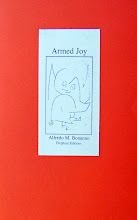Surly union representative Larizza (UIL) said it over ten years ago: align with the German unions, demand participation in decision-making. At the time Carniti, thinking of the fighting tradition of the Italian unions (in Germany there have been no strikes to speak of since 1956), smiled disparagingly. Today they all agree on the great move. The Italian unions want to transform themselves into holdings like their German colleagues, where they would acquire not only weight in the firm’s decision-making processes, but also become shareholders, and so come to possess companies and real estate themselves.
CSIL leader D’Antonio once said that in a global economy competition and international competitiveness weaken wage demands. The factory needs to breathe, otherwise there would be a risk of returning to the conditions of the Fifties, as happened in the case of the English miners in their struggle against Thatcher. Conflict, he continued, still exists, but it has moved from the streets to the directors’ offices in such a way that, through co-management, the weight of restructuring is being distributed more equally. Force must be abandoned in bargaining, Larizza states (according to whom the new participatory model should be widened from the factories to local institutions concerning the management of urban areas, investment in the South, etc.). Finally, CGIL leader Cofferati points out that it is necessary to avoid the dangers of the so-called Japanese solution: direct cooperation between employees and bosses. Participation, he says, must be filtered through the union.
As we can see, in spite of a few differences, the outline of the union is now quite compact. Any residue of struggle in the streets, any conflict based on strikes and consequent damage to the employer, however remote the probability, is to be abandoned for good. Participation means making decisions along with the owners, that is deciding on what is referred to as the ‘company’s technical problems’, i.e. the ideal composition of the various components of production: capital, machinery, labour. The result, if not exactly identical to the German model of more or less complete social pacification, nevertheless tends in that direction.
Now an important question is emerging. So long as the three big confederate unions acted at the level of claiming, autonomous base unions such as Cobas whose slogan was direct struggle still had some reason to exist, as they represented a possibility for development in the field of direct action, sabotage and maximum damage to the bosses. Basically, the bosses were still afraid in the knowledge that, even within the framework of less serious clashes, this eventuality could not be altogether excluded. Such a function no longer makes sense today. In fact, now that the big union organisations are refusing to continue in the logic of claiming it is impossible for this to be maintained by the minority unions alone. They would end up using up all their potential for struggle simply in proposing claims.
Let me explain more clearly. If what once characterised these minor union structures was the methods they used, all that would remain would be the objectives (claims as opposed to participation), sadly confirming that making claims is now enough to be ‘beyond’, and consequently in contrast with the outlook of the three main unions.
So these minor unions seem destined to taking on the superfluous and insignificant role of claiming. Superfluous because that does not suit the evolution of the economy as a whole (as the unions intelligently understand); insignificant because the minority ones (with all their pseudo-revolutionary chatter) neither desire, nor would they be able to use, methods they could only reach in the presence of the considerable strength still held by the big mass organisations in spite of all their limitations.
And any structure that loses its function, even the squalid one of holding on to someone else’s tail, tends to disappear.
[Original title: Addio alla rivendicazione, in “Canenero”, no. 11, 20 January 1995. English translation by Jean Weir published in "Let's destroy work, let's destroy economy", Elephant Editions, London.]
skip to main |
skip to sidebar

Some writings of Alfredo Maria Bonanno in English, or almost

Alfredo Bonanno was arrested on October 1st 2009 in Greece, accused of concourse in robbery. With him, anarchist comrade Christos Stratigopoulos.
Here are a few translations and part translations of a small portion of Alfredo's writing. This is a work in progress, many of the translations are as yet incomplete. Open links to find more of Alfredo's work.
Alfredo Bonnano Released
Nov. 22 Alfredo Bonnano was sentenced to 4 years imprisonment (which practically means that with the time served so far and the fact that he is over 70years old HE IS RELEASED
Christos Stratigopoulos (who took responsibility for the action)
was sentenced to 8 years and 9 months with the Greek law will probably be released at the end 2011
BY ANY MEANS NECESSARY
LINKS
click on any of these labels to read text
- "Community" sickness
- 1981 - Editorial
- A Critique of Syndicalist Methods
- A few notes on Sacco and Vanzetti
- A few notes on the revolutionary movement in Italy
- A little man in Singapore
- A million jobs
- A question of class
- Affinity
- After Marx autonomy
- Albania Laboratory of Subversion (Introduction)
- Anarchism and the national liberation struggle
- Anarchists and action
- AND WE WILL ALWAYS BE READY TO STORM THE HEAVENS AGAIN (Against amnesty)
- ANTI-INSTITUTIONAL MOVEMENT
- Are we modern?
- Armed Joy
- ARMED STRUGGLE. SOME REFLECTIONS.
- Autonomous base nuclei
- beyond syndicalism
- Beyond workerism
- But what is the imaginary?
- Class War
- Comiso - Organizational document of the self-managed leagues
- Considerations on illegality
- Dissonances (Introduction)
- Elephant Editions 1986
- Excluded and included
- Farewell to claiming
- Feral Revolution (Introduction)
- FICTITIOUS MOVEMENT AND REAL MOVEMENT
- For an Antiauthoritarian Insurrectionist International - Proposal for a debate
- From riot to insurrection
- From the centre to the periphery
- Good technology
- Guerilla Extraordinary
- Habits and idols
- Hegel
- I know who killed chief superintendent Luigi Calabresi
- Illegality
- Illness and capital
- Informal organisation
- Insurrection
- Internationalism
- Introduction to Sabate
- Introduction to Anarchism and Violence
- Introduction to Bratach Dubh English edition of Malatesta's Fra Contadini
- Introduction to Insurrectionalist Anarchism
- Introduction to Strange Victories
- Introduction to The Conquest of Bread
- Involuntary aspects of voluntary work
- Let's destroy work
- LET'S DESTROY WORK. New introduction
- Let's keep our feet on the ground please
- Lightening Conductors and Stand-ins - more shots of non-news
- Lightning Conductors and Stand-ins
- Lightning Conductors and Stand-ins (cont.)
- Locked up
- Looking forward to self-management
- Loss of language
- More on internationalism
- National Liberation Struggle
- nineteen years on
- No more crises
- Non-news about drugs
- Non-news about racism
- Ode to the Uniform
- On Feminism
- One's life on the line
- Order and chaos
- Otto Ruhle (Introductory Note)
- OUR ROLE IN THE PRESENT CONFLICT
- Palestine mon amour
- Pantagruel anarchist review
- Pinelli
- Prison and Prisoners’ Struggles - Introduction
- Propulsive Utopia
- Quality and the factory
- Restructuring Capital and the new democracy
- Revolution - Violence - Antiauthoritarianism
- REVOLUTIONARY VIOLENCE
- Science and the social revolution
- Self-management
- Severino Di Giovanni in Argentina 1923-1931 by Osvaldo Bayer
- Social banditry
- SOME NOTES -
- Space and Capital
- Stirner
- Stop the City? From information to attack
- Strategy and Methods
- Streamlined production
- The "end" of the crisis
- The aesthetics of anarchism
- The anarchist tension
- The area of autonomy and the anarchist movement in Italy
- The armed wing of science
- The Cruise missile base at Comiso can be prevented
- The ethical bank
- The insurrectional project
- THE LANGUAGE OF TECNICS -
- The logic of insurrection
- The moral split
- THE NECESSARY DESTRUCTION -
- The priority of practice
- The refusal of arms
- The revolutionary project
- The revolutionary struggle
- The significance of an insignificant event
- The struggle for self-managed social space
- The tyranny of weakness
- The whole and the part
- The young in a post industrial society
- Theory and action
- Towards anarchist antimilitarism
- TOWARDS THE GENERALISATION OF ARMED STRUGGLE
- TRANSFORMATION IN THE WORLD OF WORK AND SCHOOL -
- TRUTH -
- Unemployment in Italy - How come everything doesn't explode?
- Untitled
- Violence and non-violence
- What are anarchists
- What can we do with anti-fascism?
- Why a vanguard?
- Why Insurrection
- World domination in a few words











